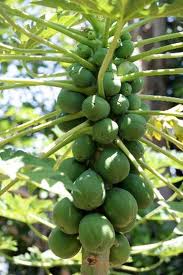OPINION: Councilwoman Ford’s Extreme Approach to GMOs
Updated 08/24/13 to amend information regarding Norman Borlaugh’s contribution to GMO.
Like a clumsy bull charging into the middle of an 18th century duel between gentlemen, Councilwoman Brenda Ford has vaulted herself in between the various adversaries in Hawaii’s GMO fight.
While interest groups have been arguing over the virtues of sustainability versus profitability versus health concerns versus issues with patenting the food supply, etc., Ford has been busy crafting a piece of legislation that may manage to momentarily silence everyone involved, if for no other reason than disbelief.
Honolulu Civil Beat posted an advance copy of Ford’s bill on their website. After reading through it, it’s hard to believe the thing is actually for real.
According to the document, Ford’s new law, which would ban pretty much everything GMO-related, is intended to “Protect human, animal, and plant life, and the land, water, and air on or under, in or over the Island of Hawaii.”
We’re not sure how much air exists “under” the Island of Hawai`i (or whether it’s in imminent danger).
Her heroic mission takes a turn for the biblical in the next section of the bill, which lays out her goal of making the Big Island a Noah’s ark-like “heritage seed bank and gene bank… in case reserves of such organisms are destroyed elsewhere.”
The point of a seed bank is typically to store essential strains of plants to guard against all-out war, and the threat of natural catastrophe.
Someone should inform the councilwoman that everything on/under/in our island happens to be perched on the slopes of active volcanoes.
Ford’s bill isn’t just a far-out expression of rainbows-and-unicorns idealism. It could also prove unreasonably cruel to farmers.
The measure, in its current form, would not only ban genetically-modified animals, feed, and crops on the Big Island, but threaten fines and incarceration for violators.
For instance, papaya farmers using genetically-modified fruit (credited in part with saving their industry in Hawaii due to the ringspot virus) could face a 30-month ultimatum to destroy their trees, or face fines of up to $1,000 per day and a month in prison.
In addition to the penalties for violating the new law, anyone who has already planted GMO crops on their land would not only be deprived of their livelihood, but would be expected to bear the cost of uprooting and composting their plants.
Although many GMO protesters have taken aim at controversial companies like the Monsanto Corporation (a lobbyist-laden entity that happens to be very corporation-y), Ford herself seems to be singling out any farmers who would dare to make a living without conforming to her particular beliefs.
The timing of her over-the-top legislation is unfortunate, as there is a legitimate debate to be had over the growing, consumption, and legal issues of genetically modified organisms. Hardline approaches tend to have a polarizing effect on opinion.
While pioneering researchers like Norman Borlaug are credited with saving more than a billion people from starvation by cross-breeding wheat strains to develop varieties with “high genetic yield potential,” the capability of those crops to withstand heavier applications of pesticides and fertilizers has caused concern over their longer term health and environmental impacts.*
Modern GMO technology has been similarly criticized, and opponents have raised concerns over everything from the safety of consuming genetically modified food products, to the possibility of GMOs wrecking natural ecosystems.
Despite the assurances of many scientists that GMO technology is inherently safe, there are enough people (including within the academic community) concerned about the technology that a constructive dialogue is very necessary. But in order to have that discussion, scientists, environmentalists, farmers and (especially) politicians have to shun rhetoric in favor of facts.
Instead, Ford’s bizarre penmanship appears at best naive, and at worst pure grandstanding.
We reached out to the councilwoman a few days ago to give her the opportunity to comment on her bill. She did not respond.
*Author’s note: An earlier version of this article credited Norman Borlaugh with using GMO technology to develop life-saving wheat strains used in India and Pakistan. While Borlaugh is credited with being the father of the “green revolution” and later became a GMO proponent, modern GMO technology evolved in the years following his pioneering work and eventual acceptance of the 1970 Nobel Peace Prize.
Sponsored Content
Comments






_1770333123096.webp)


